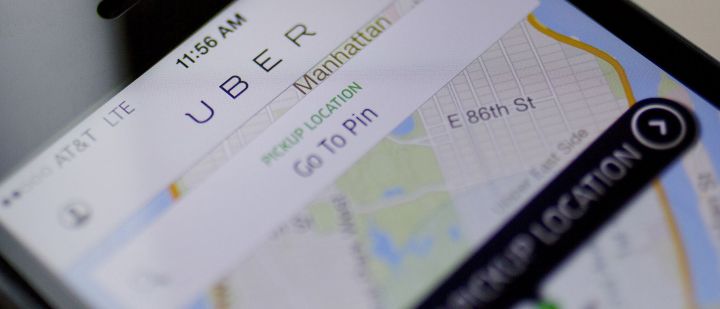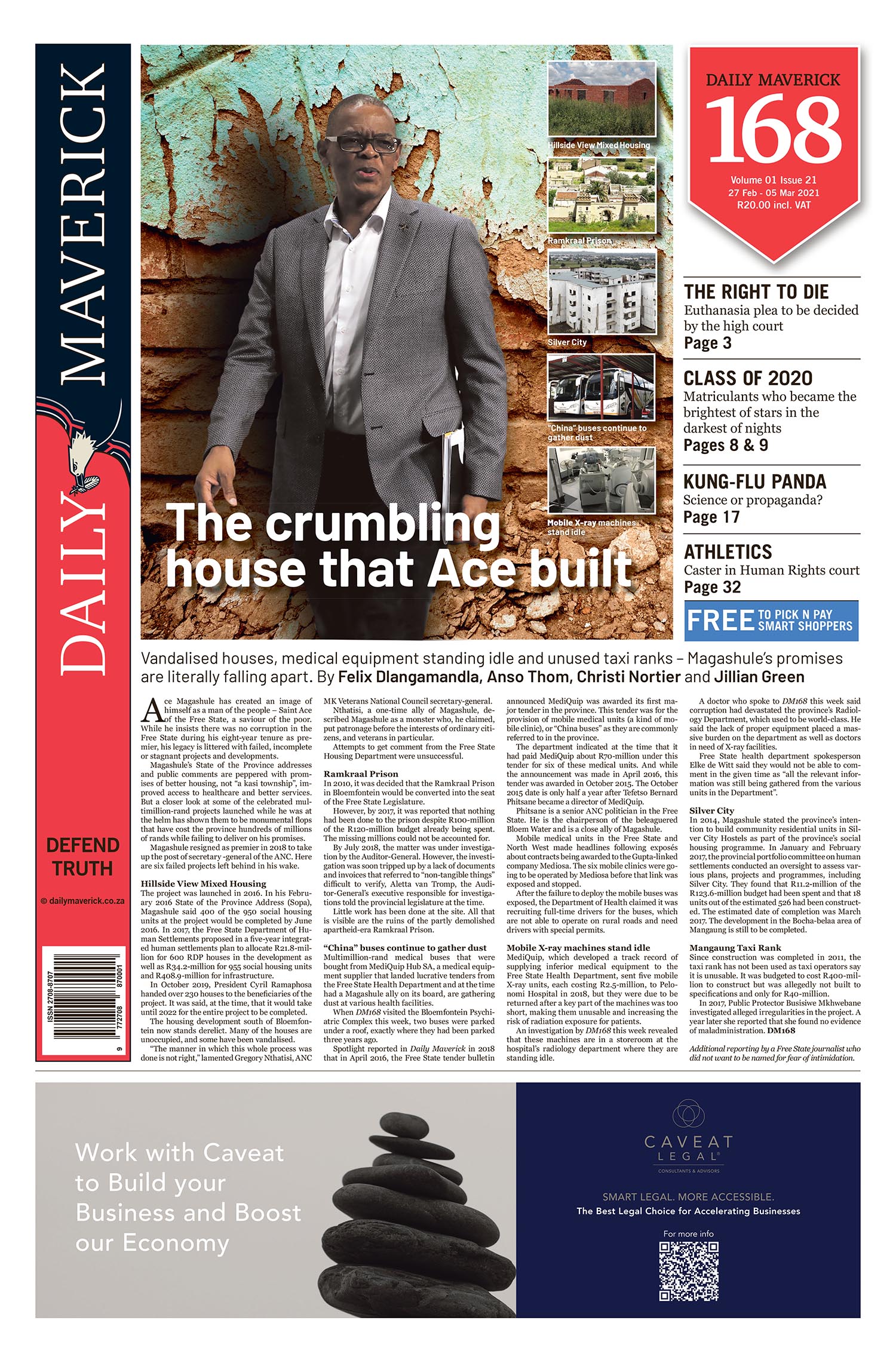BUSINESS MAVERICK 168
Driving in times of Covid lockdown: Uber, Bolt and the pivot to survive

The Covid-19 rebound – when it comes – is expected to create some momentum for small companies. But in the meantime, the focus is on survival.
First published in the Daily Maverick 168 weekly newspaper.
“You know, it was a disaster,” says Nosipho Mzimela of the early days of the pandemic. As an Uber driver in Johannesburg, she is used to picking up passengers from the airport at least three times a day, but she now is likely to go only once a week. “Even though we were essential [workers], the people were not moving around.”
She says that, although the platform did try to support them, she and other drivers struggle financially and psychologically. Many, including Mzimela, fell into arrears on the rent-to-own agreements on their cars. She says many vehicles were repossessed or drivers stopped working on the platform because they were not able to make a living.
Frans Hiemstra, general manager of Uber sub-Saharan Africa, says that lockdowns have disrupted how the company works, and moreover it has faced different regulations and challenges in each country. Gareth Taylor, the South African country manager for Bolt, previously known as Taxify, says: “The first couple of months were terrible. We lost a huge amount of our volumes.”
This, of course, isn’t particularly surprising, considering the government-mandated restrictions on movement, and the financial struggles of other transport bodies such as the Gautrain and Greyhound.
But the troubles were not linear. Taylor says Bolt had some big wins in the period of September to December 2020, during the lower levels of lockdown. Drivers were earning 25% more per hour than the previous year and the platform had 30% more rides and active passengers, and 20% more active drivers. He says the increase in users was probably because of the perceived safety of choosing e-hailing over public transport. The uptick in driver interest was in part a result of the low barrier to entry, particularly for those with professional driver permits who lost job opportunities in vulnerable sectors such as tourism.
“I think this has a lot to do with the economy and where it is at, at the moment when we have a large number of people who are unemployed or underemployed, who are now looking for ways to be able to generate an income.” Yet Mzimela says that the usual seasonal ebb and flow of income for drivers has been disrupted, and that the additional lockdown restrictions during December made it a disappointing festive season for her.
“Uber and Bolt have played a very important role in this industry and [e-hailing] created a lot of jobs … but now that’s not enough.”
She believes that drivers should be better supported by the platforms, for instance by means of decreased commission fees and the pausing of lower-fare classes, which have caused tensions between the platforms and drivers in the past months. Hiemstra admits that the disruption and uncertainty caused by the pandemic have affected those who rely on the platform. “We know it’s especially concerning for people who drive and deliver with Uber.” He says they have tried to leverage the company’s technology to give drivers added earning opportunities through the new offerings.
Uber has focused on pivoting more towards moving goods, by the Uber Connect delivery service, for example, or grocery and pharmacy deliveries on UberEats. The company has also introduced its fixed monthly fee option called Uber Pass.
Bolt has introduced various innovations, including business deliveries, and Taylor expects continued, possibly double-digit growth in the coming year. “So even though a lot of people are staying at home, we are seeing massive growth in the industry, and we expected to grow substantially next year.”
Hiemstra says: “We know the coming months will be challenging for many, [but] real opportunities lie in accelerating and evolving our delivery and logistics business.” DM168
This story was edited post-publication to clarify Hiemstra’s final quote.
This story first appeared in our weekly Daily Maverick 168 newspaper which is available for free to Pick n Pay Smart Shoppers at these Pick n Pay stores.

















 Become an Insider
Become an Insider
Comments - Please login in order to comment.